pyarelal age, pyarelal, pyarelal family, pyarelal wife age, pyarelal wife
pyarelal family
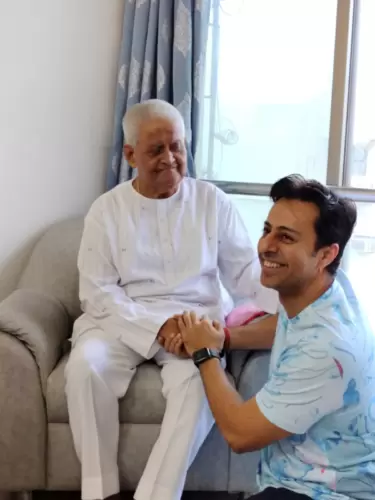
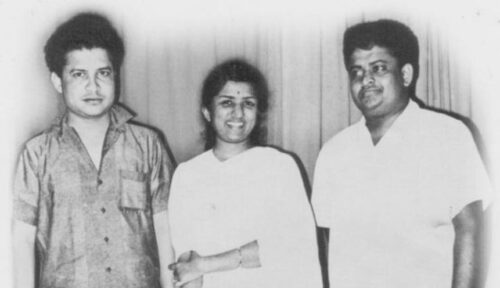
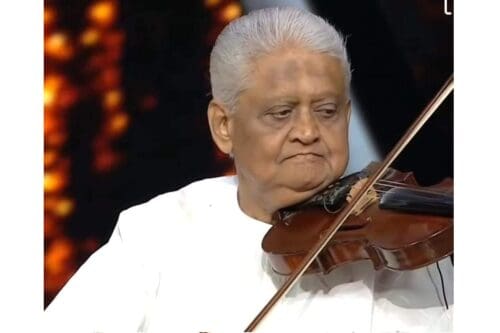
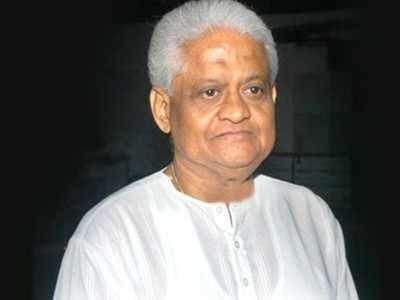
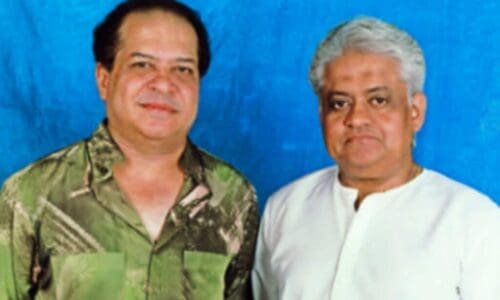
Pyarelal Ramprasad Sharma, renowned as one-half of the iconic music composer duo Laxmikant Pyarelal, was born on September 3, 1940, in Gorakh Pur.
His profound influence on Bollywood music spans over four decades, from the 1960s to the late 1990s, along with his musical partner Laxmikant Shantaram Kudalkar.
Their collaborative efforts have left an indelible mark on Bollywood, contributing significantly to the industry.
With 25 nominations and 7 wins at the Filmfare Awards for movies like “Dosthi,” “Milan,” “Jeene ki raah,” “Amar Akbar Antony,” “Satyam Sivam Sundaram,” “Sargam,” and “Karz,” they set a musical record.
Notably, their victories sometimes defied expectations, as witnessed in 1963 when they clinched the award for “Dosthi” against strong contenders like Shankar Jaikishen’s “Sargam” and Madan Mohan’s “Woh kaun thi.”
Pyarelal’s musical journey began under the guidance of his father, trumpeter Pt. Ramprasad Sharma.
Financial constraints forced him into the workforce at a young age, where he played the violin at studios to support his family.
Fate led him to Laxmikant at Sureel Kala Kendra, the Mangeshkar family’s institution, forming a friendship based on shared backgrounds and age.
Their collaboration took off with the movie “Parasmany,” though an unreleased film marked their first breakthrough in Bollywood.
The 1964 release “Dosthi” solidified their presence in the industry, kickstarting an era dominated by Laxmi-Pyare, reaching its zenith in the 1970s to the mid-1980s.
However, their influence endured even after, and in 1993, the controversial song “Choli ke peeche” from “Khal Nayak” stirred headlines.
Laxmikant Pyarelal’s musical repertoire showcased versatility, seamlessly blending classic folk and Western tunes.
Renowned for their deep understanding of Indian classical music, they explored various genres in their prolific career.
Some of their best works include “Jeene ki raah,” “Satyam Sivam Sundaram,” “Khilona,” “Hero,” “Mr. India,” “Haathi mere saathi,” “Sargam,” “Mehboob ki Mehndi,” “Karz,” “Amar Akbar Antony,” “Tezaab,” “Bobby,” and “Sanjog.”
Pyarelal Ramprasad Sharma, born into a musical lineage, commenced his musical journey under the tutelage of his father, Pandit Ramprasad Sharma.
Orphaned at a young age and facing financial adversity by 12, Pyarelal took up the violin and became the family’s primary breadwinner.
Pyarelal’s father would take him to people’s homes to seek financial help, leveraging Pyarelal’s innocent appearance.
At the age of 12, Pyarelal secured a job as a violinist at Mumbai’s Ranjit studio, earning Rs 85 a month and shouldering the family’s financial responsibilities.
It was at Ranjit studio that Pyarelal forged a lifelong friendship with Laxmikant, a partnership that would shape Bollywood music history.
pyarelal fast facts
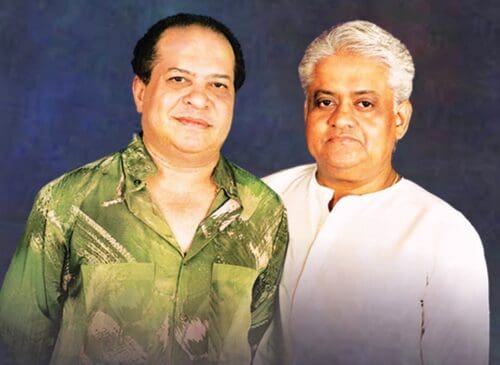
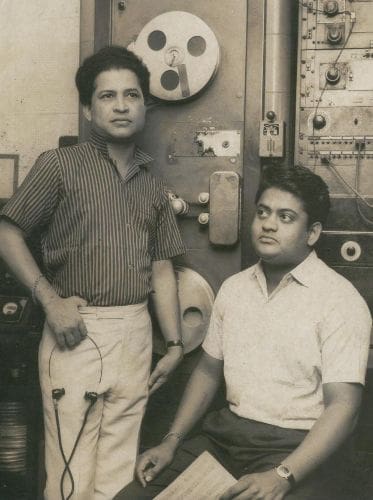
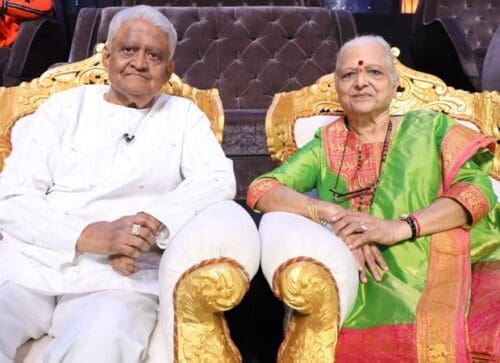
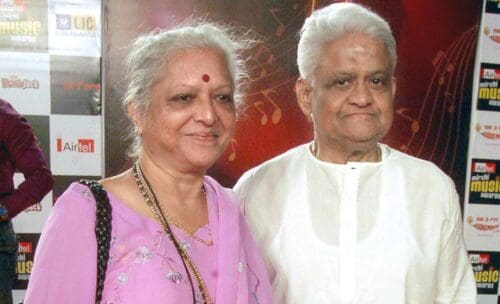
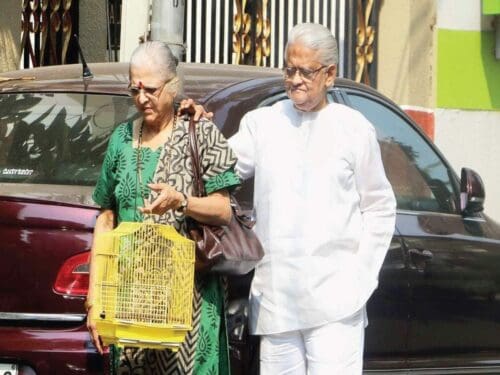
Pyarelal Ramprasad Sharma, born to the illustrious trumpeter Pandit Ramprasad Sharma (fondly known as Babaji), received his initial music education from his father.
Commencing violin lessons at the age of 8, he diligently practiced for 8 to 12 hours daily, honing his skills under the guidance of Goan musician Anthony Gonsalves.
The song “My Name Is Anthony Gonsalves” from the movie “Amar Akbar Anthony” stands as a tribute to Mr. Gonsalves, with music composed by Laxmikant–Pyarelal.
By the tender age of 12, Pyarelal’s family faced financial hardships, compelling him to earn a living by playing the violin in studios.
Frequenting studios like Ranjit Studios, he contributed to the family’s income and embarked on his musical journey.
Laxmikant–Pyarelal, the celebrated Indian composer duo comprising Laxmikant Shantaram Kudalkar (1937–1998) and Pyarelal Ramprasad Sharma, made an indelible mark by composing music for approximately 635 Hindi movies from 1963 to 1998.
They collaborated with renowned filmmakers, including Raj Kapoor, Dev Anand, B.R. Chopra, Shakti Samanta, Manmohan Desai, Yash Chopra, Subhash Ghai, and Manoj Kumar.
Following Laxmikant’s demise, Pyarelal ventured into independent work.
When playback singer Kumar Sanu transitioned into a music director, he sought Pyarelal’s assistance for music arrangement.
Pyarelal was also involved in the music of Farah Khan’s “Om Shanti Om” song “Dhoom Tana.”
In 2009, he earned the Sachin Dev Burman International Award for Creative Sound and Music at the Pune Film Festival.
Pyarelal collaborated with Kakas Entertainment on the show “Maestros: A musical Journey of Laxmikant–Pyarelal.”
On September 3rd, music enthusiasts globally celebrate the birthday of the living legend Pyarelal Ramprasad Sharma.
Born in Bombay, British India, in 1940, Pyarelal has made an unparalleled contribution to the Indian film industry as a composer and actor.
His compositions, resonating through generations, attest to his immense impact on Bollywood.
Pyarelal’s journey in music commenced in the early 1960s when he partnered with Laxmikant Shantaram Kudalkar, forming the iconic duo Laxmikant-Pyarelal.
Their collaboration, spanning decades, revolutionized film music by seamlessly blending classical Indian and contemporary styles.
Pyarelal’s profound understanding of musical nuances played a pivotal role in crafting unforgettable melodies that endure.
His discography includes timeless classics from films like “Om Shanti Om” (2007), “Karz” (1980), and even international acclaim for “Eternal Sunshine of the Spotless Mind” (2004).
A milestone in Pyarelal’s career was his collaboration with Yash Raj Films, starting with “Daag” in 1973.
The legacy of Pyarelal extends beyond compositions, as he has mentored and inspired numerous musicians, leaving an indomitable imprint on the music industry.
His music transcends time, evoking emotions and reminding us of the enduring power of music.
